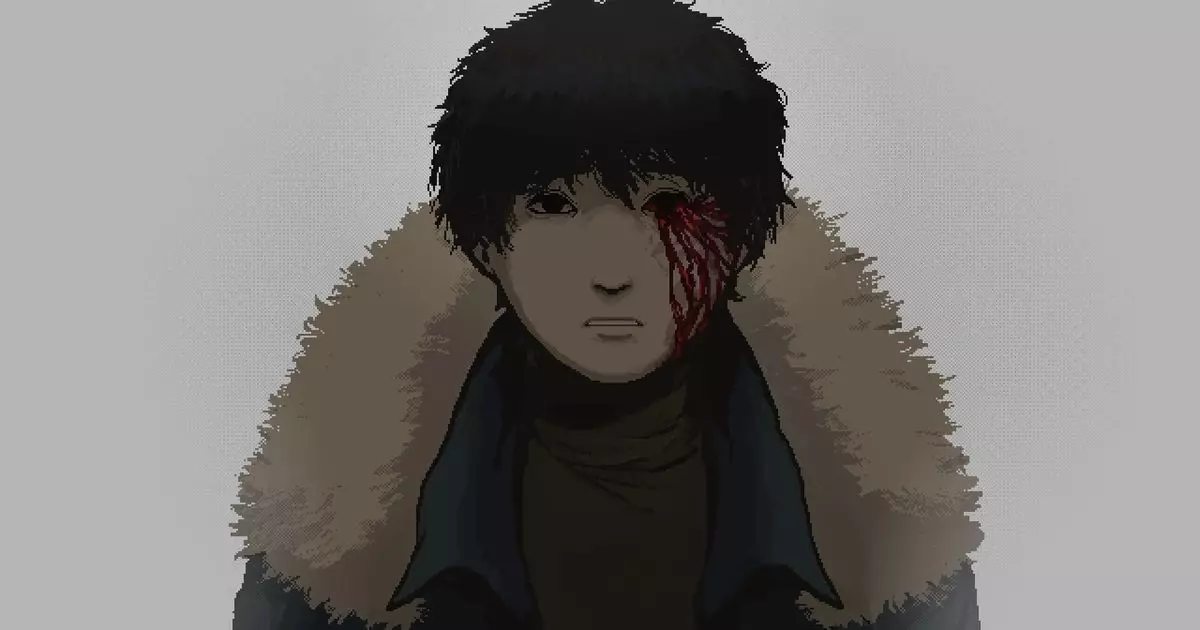Role-playing games (RPGs) have thrived on the premise of building relationships, whether it’s with a trusted companion or a conflicted antagonist. Traditionally, players engage with a diverse cast of characters, developing bonds that enrich the narrative experience. However, the innovative game Downhill takes this a step further by presenting an exceptional twist: the protagonist, Fade, is fully aware of your presence as the player. This self-awareness invites a deep, reflective relationship that challenges conventional boundaries between player and character, posing the question: what does it mean to truly “play” a character with agency? This level of interaction not only enhances player immersion but also prompts an exploration of power dynamics, control, and empathy within gameplay.
A Fourth Wall Experience
While fourth wall-breaking mechanics have been prevalent in various games, most notably in classics like Undertale, Downhill seems to excel in this arena through its unique character interaction model. The narrative does not merely nod to the player’s agency but actively engages with it, making the player’s choices steeply consequential. Each decision—be it nurturing or confrontational—affects Fade’s perception of you, thereby fostering a nuanced relational depth. The player’s traditional role as omnipotent controller transforms into a more complex partnership as the game invites reflection on one’s ethics and intentions within the gaming world.
Thematic Depth: Power Dynamics and Responsibility
At the heart of Downhill is a thoughtful exploration of power and its ramifications. Sisterhood Games, the developer, aptly summarizes this theme on their Kickstarter page, framing the journey not just as a quest for survival but as a critical interrogation of who wields power and to what end. This concept resonates with the real-world dynamics of authority and vulnerability, enticing players to ponder their own decision-making processes. The struggle for control is beautifully manifested in the gameplay; players can revive Fade multiple times, each resurrection not merely a mechanic but a cause for her emotional distress. Such an element not only adds complexity to the gameplay but serves as a metaphor for real-life consequences that individuals face when pushing boundaries—purposely or inadvertently.
Aesthetic Brilliance and Artistic Choices
Visually, Downhill embodies a unique dark fantasy aesthetic that complements its richly layered storytelling. The art style strikes a balance between enchanting and off-putting, establishing an atmosphere ripe for exploration. Creatures depicted are not just enemies to be vanquished; they embody the eerie undercurrents of the narrative. Such artistic choices negate the notion of disposable villains, instead inviting players to engage in deeper dialogues with their environment. These creatures could symbolize the facets of Fade’s psyche, making each encounter a twofold experience where you confront foes while also piecing together Fade’s fragmented story.
The Future Unfolds: Community and Support
Currently seeking funding on Kickstarter, Downhill represents a collaborative effort to reshape interactive narratives in gaming. The potential of this project is magnified by the community’s involvement; supporting the game implies not just a financial contribution, but participation in a revolutionary shift in how stories are told in RPGs. Furthermore, the availability of a demo provides an accessible avenue for potential players to engage with this creative endeavor firsthand. Players contemplating backing the project are effectively stepping into a role too—contributing to a world that promises to interrogate challenging themes through the art of gameplay.
The relationship between player and character in Downhill transcends conventional gaming experiences, calling for reflection on how we engage with the power dynamics of narrative and authority. As you traverse the complexities of Fade’s journey, you are not merely a spectator; you are part of an insightful commentary on control, character, and consequence. As we approach a new wave of interactive storytelling, it’s games like Downhill that amplify the voices of both players and characters, crafting an ecosystem where meaningful relationships flourish. This not only invigorates the gaming landscape but invites players to fully immerse themselves in a dialogue that elegantly straddles the line between fiction and reality.

